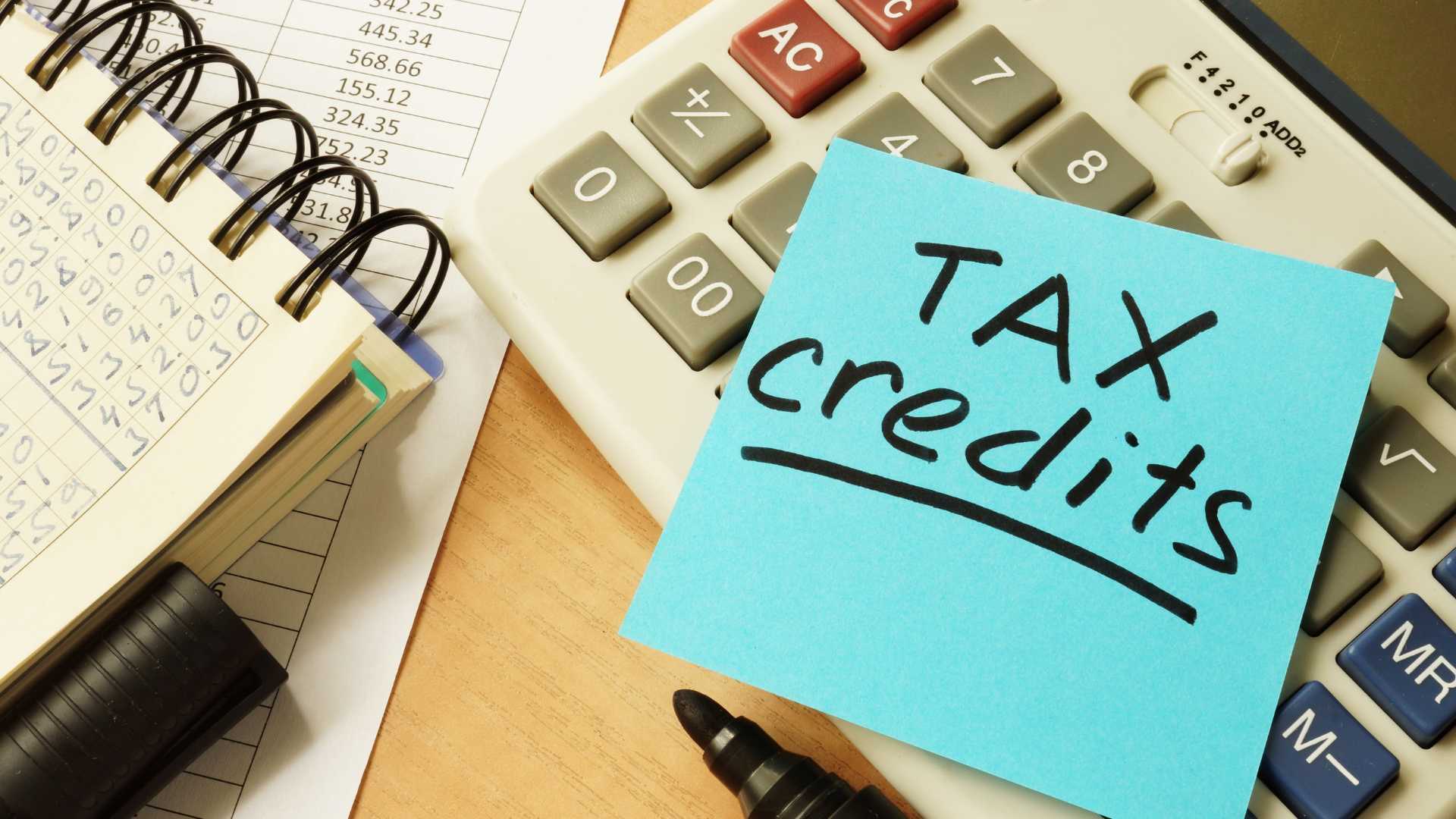Keeping You Informed November 2022
Believe it or not, it’s already time to start gearing up for another tax season. As we wrap up the 2022 tax year, we thought it would be a good time to review the actions Congress and the IRS have taken in the last few months that may have an impact on your returns, refunds and future tax planning. If you have any questions about the changes and how they could impact your return, or need advice on how you can reduce your tax bill for the rest of the year and get a start on planning for tax season, please get in touch with us.

Inflation Reduction Act Tax Credits
The tax legislation that has received the most attention in the past year is the Inflation Reduction Act of 2022 (IRA of 2022), which was signed into law this August. One of its goals was to address climate change by offering tax incentives for going green. While some of these incentives are targeted at U.S. businesses, most are available to U.S. homeowners who make energy-saving improvements to their homes. Many of the tax benefits offered by the IRA of 2022 are not new but are actually extensions and modifications to existing credits that either had expired or were set to expire soon. For example, the nonbusiness energy property tax credit was renamed the energy efficient home improvement credit and extended through 2032.
Beginning in 2023, the credit amount will be 30% of the costs of eligible home improvements made during the tax year, with a $1,200 annual limit. The specific annual limits for improvements are: $150 for home energy audits $250 for exterior doors meeting Energy Star requirements ($500 total for all doors) $600 for windows and skylights meeting Energy Star’s most efficient certification
requirements $2,000 for specified heat pumps and heat pump water heaters, biomass stoves and boilers (neither the $1,200 annual limit on total credits nor the $600 limit on other qualified energy property applies to this amount).
$600 for other qualified energy property, including central air conditioners; electric panels and certain related equipment; water heaters powered by natural gas, propane, or oil; oil furnaces and water boilers The IRA of 2022 also renames the residential energy efficient property credit as the
residential clean energy credit. This credit was scheduled to expire at the end of 2023 but has been extended through 2034. The credit amount increased to 30% for 2023 through 2032, but drops to 26% in 2033 and 22% for 2034. The energy efficient home improvement credit no longer applies to
biomass furnaces and water heaters, but will apply to battery storage technology with a capacity of at least three kilowatt hours.

Updated Electric Vehicle Credit
It may seem the IRA of 2022’s $7,500 tax credit for purchases of new electric vehicles is just a continuation of a credit that was already available, but the legislation made many substantive changes. The credit is now known as the clean vehicle credit, and the IRA of 2022 placed several restrictions on the credit that may make it difficult for some buyers of electric vehicles to take advantage of it. The changes that are expected to have the broadest impact include caps on the income of the taxpayers eligible for the credit, a limit on the retail price of qualifying vehicles and new sourcing requirements. Starting in 2023, only households with incomes of up to $300,000 qualify for the credit, with the credit limited to individual taxpayers with incomes below $150,000. Additionally, only battery-powered cars priced at less than $55,000 are eligible, or $80,000 for vans, SUVs and trucks. Finally, final assembly of the vehicle must have been in North America, and the materials from which it is constructed must meet specified sourcing requirements.

Student Loan Forgiveness Not Taxable
President Biden’s decision to forgive a portion of some student loans and the objections some have raised to his actions received a great deal of media attention over the summer. Receiving significantly less attention were the potential tax implications for those whose loans were forgiven. Many in the tax community were concerned that those who received forgiveness would end up paying much larger tax bills because the IRS has traditionally taxed forgiven debt as income to the taxpayer. Fortunately, Congress had already anticipated the problem and the American Rescue Plan Act of 2021 preemptively excluded most student loan debt from income for the 2021 through 2025 tax years.
Educators Expense Deduction Increased
The out-of-pocket expenses that educators can claim as a deduction increased to $300 for 2022, up $50 from last year. This is the first increase since 2002. The deduction for unreimbursed expenses is available to all educators, even those claiming the standard deduction. Married educators who are both claiming the deduction can claim a deduction of up to $600. If you or your spouse are an educator who plans on claiming the deduction for 2022, remember that you need to track the receipts for your out-of- pocket expenses to verify the amounts you claim.
Improperly Forgiven PPP Loans Taxable
One of the primary benefits of the Paycheck Protection Program (PPP) loans to help businesses keep their workforce employed during the COVID-19 pandemic was that many eligible bor rowers qualified to have their loans forgiven, and the forgiveness is not taxed. However, there were some instances where borrowers had their loans forgiven despite not being eligible for forgiveness. An IRS review of the program discovered that some ineligible taxpayers got their loans forgiven, often through misrepresentations or omissions. This fall, the IRS announced that those taxpayers whose loans had been improperly forgiven must include the forgiven amount in their income.
New Funds to Improve IRS Enforcement
Treasury Secretary Janet Yellen recently outlined the IRS’s plans for the nearly $80 billion in
addi tional funding in the IRA of 2022, which includes increasing the agency’s compliance and
enforce ment efforts. While the additional funding will decrease the gap between what U.S. taxpayers owe and actually pay, Yellen stressed that the new resources will not be used to increase the audit rates for households with less than $400,000 in annual income. In addition to increased enforcement, Yellen explained the funds will be used to transform the IRS into a 21st century agency and improve customer service by fully staffing IRS Tax Assistance Centers, hiring 5,000 additional phone representatives and improving the agency’s slow turnaround for paper returns.
COVID Penalty Relief for Late Filers
The COVID-19 pandemic made it difficult for some taxpayers to file their returns, and in September, the IRS announced it would stop imposing failure to file penalties on individuals and businesses that filed their 2019 and 2020 returns late. The deadline for taxpayers to file late returns for those years and have their full penalty forgiven has already passed, but the IRS says taxpayers can still file and pay a reduced penalty within the next few months. To receive complete relief from failure to file penalties, taxpayers needed to have their returns for those years filed by Sept. 30. The nearly 1.6 million taxpayers who have already paid the failure to file penalty for that year received more than $1.2 billion in refunds or credits. Unfortunately, the penalty relief only applies to the failure to file penalty for the 2019 and 2020 tax years. The IRS has said taxpayers who have unpaid taxes from those years will still be assessed the failure to pay penalty and interest, even if the taxpayer is eligible for relief from the failure to file penalty. However, taxpayers who have not filed for 2019 or 2020 and owe tax should still make an effort to file because the failure to pay penalty is usually assessed at 0.5% per month from the date the return was originally due. The interest rate the IRS charges on unpaid taxes rose from 5% to 6% on Oct. 1.
IRS Crackdown on Crypto Continues
This summer’s crash in cryptocurrency prices has many Americans souring on digital assets as an investment, but the IRS continues to expand its efforts to locate taxpayers who are using
crypto currency to avoid taxation. The COVID-19 pandemic slowed down the agency’s Virtual Currency Compliance Campaign, but the IRS is once again ramping up its enforcement efforts. In September, the agency received a judge’s permission to issue a summons requiring that a bank turn over information on customers using the popular crypto broker sFOX. It has also warned taxpayers that it may take additional action to get banking information for taxpayers using other brokers. Additionally, the IRS is planning to spend a portion of the funding the agency received through the IRA of 2022 to improve its ability to monitor cryptocurrency transactions.
The IRS treats cryptocurrencies such as Bitcoin and Ethereum as property, and taxpayers are required to pay the capital gains tax on any profits they earn by buying and selling virtual currency. For the 2022 tax year, the draft of Form 1040, U.S. Individual Income Tax Return, includes an updated question on whether a taxpayer has engaged in any cryptocurrency transactions. If you sold or are planning to sell any cryptocurrency during 2022, it’s better to disclose your profits to the IRS and pay the tax due than it is to get caught not disclosing the assets to the government and face penalties and interest.
 4 min read
4 min read 